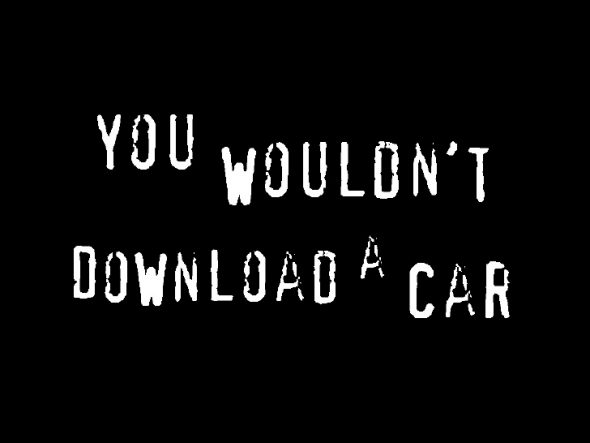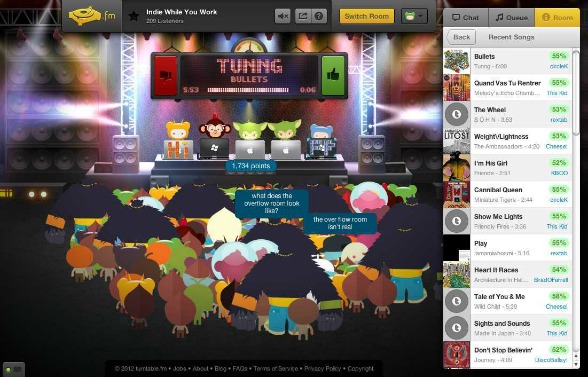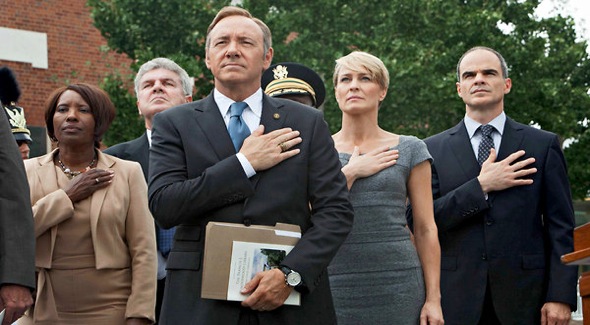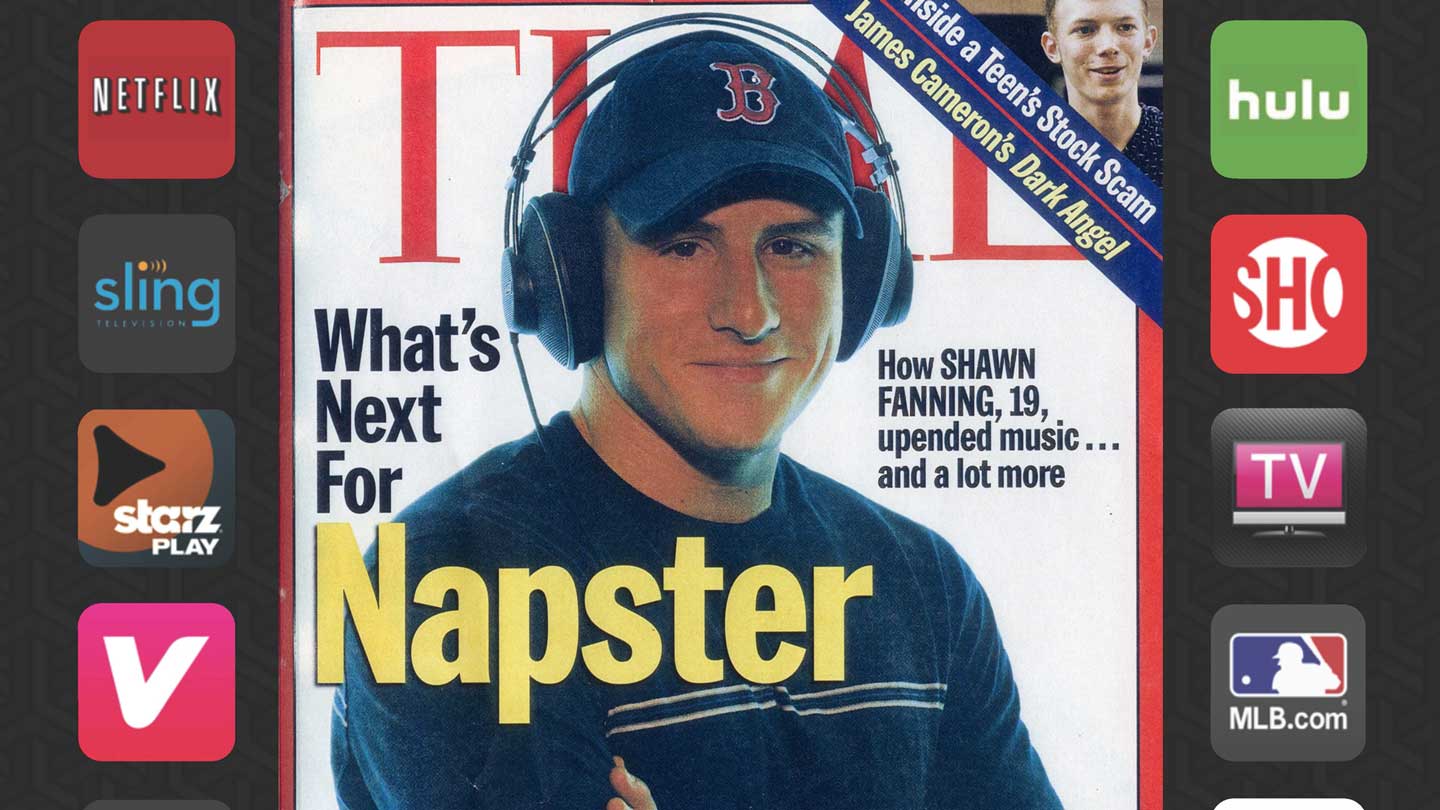It’s way too premature to make predictions, but 2017 has already been an interesting year for online media.
For the last decade, the story of journalism has been declining subscriptions, dwindling ad revenues, consolidations, and shuttered doors. Yet the New York Times saw 276,000 new digital subscriptions in the last quarter of 2016. The Washington Post, after cutting staff for years, is adding 60 newsroom jobs currently. The Wall Street Journal saw a 300% spike in subscriptions on the day after the U.S. Presidential election. It would take months of similar spikes to make up for years of receding readership, but America’s new administration certainly promises to be newsworthy.
In the entertainment world, Chance the Rapper became the first artist to win a Grammy for an album released exclusively online. Spotify crossed 40 million paid subscribers last fall, with over 100 million users in total. Netflix will probably reach 100 million paying members in 2017.
TV and films are also acknowledging the prevalence of streaming. CBS’s The Good Fight, its follow-up to the critically acclaimed The Good Wife, is only available on its premium streaming channel. Amazon Studios’ Manchester by the Sea received six Oscar nominations, a first for a digitally streamed film.
And this is just the latest chapter in a continuing story. Netflix’s Beasts of No Nation won Idris Elba a BAFTA nomination and a SAG award, among many others. Kevin Spacey and Robin Wright have been nominated for Emmys every year since House of Cards premiered, and Uzo Aduba has two on her shelf thanks to Orange is the New Black.
That so many people are willing to pay for online media in 2017 won’t surprise you, if you look back at the trend of the last couple of years. But it will surprise you if you can remember the last twenty.

I started college in the fall of 1999. Living away from home, with my first laptop and my first local computer network, I discovered the joys of file sharing for the first time. The kids on my floor who had the most extensive collections – of mp3s, of movies, of adult clips and imagery – became minor celebrities. Once we could search across an entire network for specific files, the process became less like “sharing,” as we might traditionally recognize it, and more like a hive mind. Digital property was held in common.
When Napster hit the scene around the same time, it felt like a natural outgrowth of an existing market. Instead of scanning my neighbors’ networks for a .mov of The Matrix, I could search around the world. Nobody told us at the time that we were on the cusp of a revolution, that we were about to topple broadcast radio, the record industry, and home movies. We just wanted that bluegrass “Gin and Juice” cover that everyone mislabeled as Phish.
After I graduated college, I got a laptop that could burn CD-Rs and roommates with much hepper musical tastes. Napster had disappeared in its original incarnation, but Limewire, Kazaa, and other filesharing services arose in its stead. My music collection broadened and deepened – indie hip-hop, classic electronica, New Wave post punk, and even the alt-rock resurgence heralded by Franz Ferdinand, Interpol, and The Killers.
It was also around this time I canceled my Blockbuster membership to join the new DVD service called Netflix. I could still find the latest and most popular films online a few weeks after their release, but no one was going to rip and seed the classics.
During this period, I was still libertarian enough to be tapped into online debates over filesharing. There was a prominent strain of traditional libertarian thought that venerated intellectual property as much as more traditional forms. But many of us, especially those on the Cory Doctorow end of the spectrum, saw IP as an outdated behemoth. We recognized that corporations like Sony cracked down on filesharing not out of an aesthetic love of artists, but as a means of capturing unclaimed profits.
But as vast as filesharing networks grew, it was impossible to save all the media one might want on one’s home computer. Companies that allowed online streaming crept to the fore. I first became aware of Pandora when it was a project to categorize all music on a series of scales – for melody, for genre influence, for “mood.” So when it evolved into an Internet radio app, I adopted it with little hesitation. If I discovered an artist I liked, I might still stockpile their mp3s through my traditional pirated means. But now I knew the cloud could provide.

Pandora gave way to Grooveshark. From Grooveshark, I moved onto Turntable.fm, very popular among the open-floorplan startups where I worked. Then my more connected friends gave me a beta invite to the US version of Spotify and I was hooked. Even my extensive collection couldn’t compete with every recording by any artist I’d ever listened to, or recommendations for those I’d never heard of. I discovered The National, Sugar Tongue Slim, and Black Joe Lewis and the Honeybears. I deepened my appreciation for The Replacements and Ted Leo. I fell in giddy adolescent love with Frank Turner and the Sleeping Souls.
I listened to Spotify’s free edition for years, tolerating the occasional ad for Bonobos or Stamps.com in exchange for access to the world’s library of music. When I realized I could install the premium edition on my phone, I finally made the jump. Removing ads was a bonus. Now, for $9.99 a month – less than the price of one new album a month – I can discover any commercial artist in the world, and most of the independent ones, in seconds. Except Taylor Swift, and frankly that’s her loss.
It took me a while to recognize the change I’d made. I’d gone from believing I would never again pay for music – why should I? – to paying a recurring fee every month. There was no great ideological shift involved. It was purely a matter of convenience. To download and manage all the songs I listen to in a week on Spotify would replace all my other hobbies and overheat my laptop. I’d evolved (or devolved) from a principled opponent of Sony’s intellectual property regime to a willing supporter.
And it wasn’t just in the musical sphere. When Netflix originally allowed limited movie streaming, I ignored the feature for months. The selection was miserable; they had nothing that I wanted to see, or that I couldn’t get through their DVD catalog. And I had to use Microsoft Silverlight, the worst means of consuming media since Mesopotamian clay tablets, to watch anything. At my subscription tier, Netflix enforced a 2 hour per month cap. I never hit it.
I wasn’t ignorant of the benefits of TV streaming. I had a Hulu account — still free back then — as a means of keeping up with current shows. Hot dogs and last week’s Burn Notice used to be a regular Friday night ritual. But I couldn’t imagine moving beyond that.
Then Netflix debuted House of Cards, which, if you’ll recall, was considered a longshot for them at the time. When my wife and I realized we’d hit my cap if we wanted to keep watching, I upgraded my subscription tier on the spot. Eventually, I canceled my DVD subscription entirely. I could never watch discs promptly enough to make keeping them cost-effective.
In the course of just over ten years, I went from stealing all my media to stealing none of it.

What drove this shift? Having more disposable income certainly helped. The increase in quality and the depth of content from streaming services has also been key. It takes me about as much time to queue up a movie on HBOGo, or a new album on Spotify, as it would to insert the appropriate disc. And once I do, I have access to a larger library than I could comfortably keep in my 1BR.
I don’t want to extrapolate too broadly from my experience. Media companies and researchers insist that piracy isn’t declining, merely shifting—from stolen files to streamed media. Instead of keeping one’s illegal .movs on one’s hard drive, now one searches for them on “the cloud” (i.e., other people’s hard drives).
But streaming video subscription revenue has tripled over the last six years, and is projected to increase another 40% in the next four. Digital music surpassed physical music as a source of revenue in 2015 and won’t be going back unless Pandora becomes conscious. This may not be enough to reverse the declines of the last decade. But it’s a safe bet that if media companies can find a source of revenue that’s actually growing, they’ll make it as enticing as possible.
Maybe not everyone will make the shift from piracy to, uh, privateering like I did. But the ranks of hardcore ideological holdouts must be dwindling, if only because hardcore ideology is rare. A child entering college in the fall of 2017 probably can’t remember a time before YouTube, and may have had access to Netflix streaming since before their teenage years. By the time they were thirteen, entering the peak period for forming nostalgic musical connections, they’ll have had Spotify, Google Play, Pandora, and countless other streaming services to inform their tastes. What will they share with roommates, neighbors, crushes? What new genres will they discover, and how?
This is where my own experience and the paucity of data limits me. Sound off in the comments, Overthinkers: how much media did you pirate / share during your peak periods? How much now?

In the Napster days, a small cottage industry sprang up in my high school where guys who had access to high-speed internet, Napster and CD burners would regularly take playlist orders from those who didn’t. On more than one occasion I would give a friend a list of music I wanted, which he would then download, burn to a CD and deliver to me (for a small fee, of course).
Of note might be this article, which I remember reading way back when it was recent: http://www.nbcnews.com/id/49930416/ns/technology_and_science-tech_and_gadgets/t/music-pirates-also-biggest-buyers/
For those who don’t want to click through, a summary is basically this: the people who do the most file-sharing also tend to spend more money on legitimate music purchases than those who do no file-sharing. My takeaway was that super-fans turn to file-sharing when they can’t afford to buy every single album or DVD or whatever they want to own. When streaming services bundle large libraries with low fees, the incentive to pirate goes away.
That said, I’ve never met one of these mythical music superfans who spend all their disposable income on music and then turn to pirating when they still want more – in my experience, my friends and acquaintances in high school and college seemed to slot pretty neatly into either “does not pirate” or “exclusively pirates, does not purchase” categories, so who knows?
I never really pirated anything. The most I did was search on youtube because of sever internet restrictions and everyone was saying that stealing was bad when I was growing up. Nowadays, the majority of my internet usage is off my data on my phone which is not a whole lot, and thus really restricting my netflix usage. The majority of my entertainment is off of dvds and cds, and now that HMV is closing in Canada, my methods of obtaining entertainment are even more restricted.
The scary stories of the government tracking those who pirate kept me away from it after 2004. (I am sure that the actual number of people arrested is way smaller than my brain imagines it is, but still, I don’t want to risk prison.) My family was on dial up until 2006 anyway, and from 07-09 I lived in Mexico without internet, so nothing to worry about. Since I got back streaming was always so easy, no need to pirate. If I really want a song, and it isn’t on iTunes, I’ll google it and find a link to download without paying, but the number of songs I pay for compared to get for free is probably 100 to 1. I also still love to buy physical copies of movies for three reasons. 1 – I like to watch it when I want, so if I have bought it then I can just pop it into my laptop with or without an internet connection. 2 – streaming libraries are limited, they just don’t have everything I want to watch. 3 – each streaming service has its own library for digital copies, and (here is the biggest of the 1st world problems) I don’t like switching apps because I am lazy. I just want it all in one place. It pisses me off that I have to look one place for what I bought on Amazon Instant Video, another place for UltraViolet, and a different place for iTunes. If I have it on disc, it is all in one spot. Just find the disc and pop it in.
Siloing’ of purchased digital content is why I only rent instead of buy. I just can’t put in the effort needed to keep track of what I ‘own’ and where.
I was very young when I first came across Napster – I used to secretly listen to whatever songs my older sister had downloaded. Once I figured out how to use it for myself, I mainly used it to download stuff that I couldn’t find anywhere else – mainly Japanese songs from anime I desperately wished I could watch.
Scroll forwards a few years to the dark ages when I shamelessly pirated the entire IMDb Top 250, any of the TV shows I was into, any music, games and programs I wanted, because it was easier than going to the shop and buying them with my scarce pocket money.
Nowadays, I don’t pirate anything. Mostly, because I’m a grown up who can actually afford to buy stuff without asking my parents, but also because direct streaming is much more convenient than waiting for something to download, and is guaranteed to be good quality. For things like Spotify or Netflix/Amazon Prime… well, I haven’t yet found an easier way to quickly transfer music and video onto my smartphone or tablet, so I think that informs my decision a lot. Crunchyroll delivers the best Japanese anime, translated into English, a few hours after it’s released IN JAPAN (which is basically 12-year-old me’s dream come true). Steam is quicker than downloading and less virus-inducing, Photoshop doesn’t require me to sell my liver…
… Did I mention, the blissful lack of porn ads?
I missed the Napster era, but I spent my last couple of years of high school all over Kazaa and Limewire. Developed some musical tastes then that are with me to this day. When it came time to Higher Education, I too pillaged the uni network shamelessly, although there really wasn’t a lot of new content being added after everyone moved in. For one thing, the uni effectively gave us 60Mb of downloads with a 2Mb per day refresh rate – enough for the ordinary student living off in the real world, but crippling for those of us living on campus. If you used a TAFE account instead you were unlimited, but filtered (no pr0n – hey, it was the era of 1337), and if they noticed someone’s usage spiking they’d unplug that port anyway. My best friend was the only one to make it work, and that was by making friends with lots of people who never used their uni internet and were willing to donate it to him. He just kept a file of all their usernames and passwords and switched from one to the next as needed.
But as I said, there was no file sharing going on, at least none from the outside web. We just didn’t have the megs.
But, I was still a broke uni student – the govt determined that my parents made too much money for me to get Austudy, which meant they paid my rent and gave me $100 a week to live on. And I was still in my peak music- and movie-consuming years. So, I borrowed the one and rented the other – the local DVD place had a 7 Weeklies for $7 deal, so I took full advantage, ripping and burning anything I liked. $5 overnight for a New Release was absurd, impossible. I justified it by telling myself I wasn’t costing them sales, because I couldn’t afford to buy this stuff anyway, and besides, evil soulless corporations. At the time I was a musician as well so I told myself I knew how The Business worked – and I wasn’t costing the musicians themselves much, just the record labels that bled them dry. Killing creativity? Ha, no, killing the producer’s coke habit maybe.
Now, when I have a job and it’s the era of streaming, I still don’t stream, because this is Australia and our internet is painfully slow. The NBN has just been installed in my local area and it’s been a running joke for at least two years before that. Unlimited megs remains the dream but if you want them you either have to pay through the nose for wireless or have a high-speed landline installed. And of course, having a landline installed implies owning the house you live in, so you can guess how many Millennials like me are in that situation. Mostly, if I want something huge downloaded, I go to a friend who lives with his grandparent who has a huge download limit they never use. Mostly what I’m downloading though is mods for rFactor, which was intended from the beginning to be the modding community’s darling. File-sharing – legal file-sharing – was always the plan there, and it was released back in 2006. For music? In the last five years I’ve downloaded about the same number of songs, from various places online, but nerves about viruses keep me from much of that. If I want something badly enough I’ll usually just buy it (on CD, like the Luddite I am since I turned 25) or, if it’s some awesome cover or original composition not released on CD, I’ll record it off YouTube. Movies? It’s DVDs all the way.
I watched for many years the slow toppling of the music industry, mostly with wry amusement – burn, you bastards, burn! – but the rebound in the media is genuinely worrying. Are you telling me it’s like Rupert Murdoch’s Alt-Right propaganda machine might actually survive the demise of the Baby Boomers?! PITCHFORKS! NOW!!
I’m going to out-Geezer all of. I was file sharing using Internet Relay Chat (IRC) which was a precursor to Napster. File sharing before dedicated peer-to-peer networks required very wonky arcane knowledge and depending on your chat client had a very kludgey text based interface. When a younger hipper coworker explained Napster I was disdainful. It was just IRC over a different network. It just seemed too easy.
Another pre-web internet service which got commandeered into file sharing were binary newsgroups. Entire movies were coded and broken down into text files which were re-assembled on the client end. It was a one-to-many distribution system which relied on the altruism of the uploaders. At the time I was mostly leeching bootleg Bruce Springsteen concerts.
My son is a millennial who has never not known file sharing. He was using various torrent services to download hours and hours of anime unavailable in the U.S. He often had fan dubbed episodes within a day of their airing in Japan.
When he left for college he left the software on the family computer so when I heard of this new fantasy series called “Game of Thrones” I started pirating that show. About three weeks in we got a nastygram from our cable company telling us that future downloads would result in cancellation of our service. When I told my son about this he was ashamed that I was so unsavvy as to get caught. My wife who is very rule-following immediately added the HBO movie package.
I still buy hard CDs but only because they are frequently cheaper than the download version and come with free rips. All my home media consumption is either timeshifted DVR recordings or on-demand through one of the three services we subscribe to. My wife has a Spotify account but I only use it to preview TFT podcast topics.
Streaming is now the dominant format and I never bother pirating mostly because my skilz have atrophied and the marginal cost of finding something I want is near zero since I already have services available.
I just missed the Napster by like a year. But I used Morpheus and Kazaa and Limewire in college, because it coincided with the time in my life where I was trying to cement my taste and exploring new art/culture and entertainment.
After college, I basically stopped downloading music because I wasn’t really “exploring” anymore. Most of the music I liked, I already owned. And once Spotify existed, I didn’t even have to bother digitizing the CDs I’d bought in high school and college (mostly used or at clearance sales when the music stores went under).
I almost never pirated movies because I like going to the theater and I live in LA, where, if you put in a little effort, you can basically see any movie, no matter how big or small, old or new on the big screen
I did still pirate some TV shows up until a few years ago. I would often torrent them, but there were also plenty of free streaming sites. Mostly I would use them for stuff that wasn’t available to me easily or cheaply, especially premium cable channels, since I didn’t even have regular cable. I got the same HBO email about Game Of Thrones that yellojkt describes, but it got sent to my office which was kind of embarrassing.
During the years I was doing this, two things were happening. One was that the streaming sites got worse and worse. There were so many pop up ads that it was hard to just click on the right button to play the videos. And the quality was bad and the videos would freeze and buffer every two minutes at best. Then all the shows I wanted to watch started being unavailable. At the same time the amount of stuff I wanted to watch, and how easy it was to watch it legally, increased markedly. Between Netflix, Hulu, Amazon prime or, at worst, the channels own website, it’s so easy to watch stuff. This led me to become so spoiled that I won’t put in any effort to watch something. If I do have to make an effort, I’ll just watch something else. As of two or three years ago, watching things illegally just became too much damn work.
In those last couple of years, I also developed a strategy for it to not be that expensive. It started with HBO Now. I realized I could pay for 2 or 3 months a year, watch pretty much everything I wanted on the channel, then cancel it until the next season of whatever show I most wanted to watch started. I realized I could do the same with Netflix and Hulu, and probably will do with Starz when American Gods comes on and CBS WhateverApp when Star Trek Discovery does. Basically I create my own a la carte cable month by month.